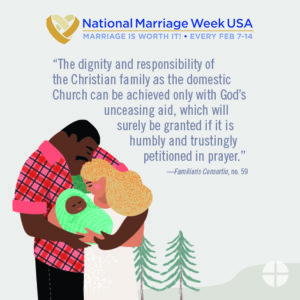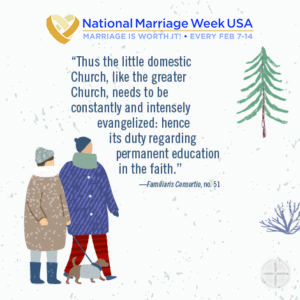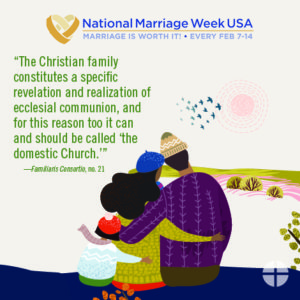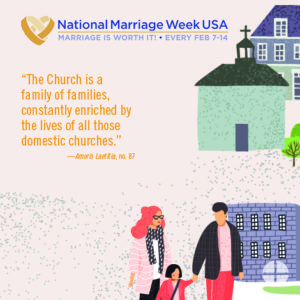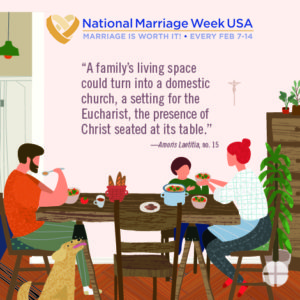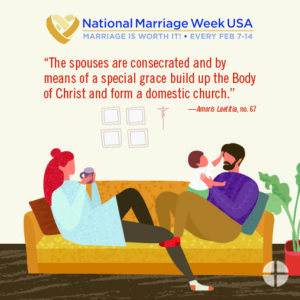Here we sit, nice and cozy on a rainy spring morning, laptops out, sipping tea, and working from home. Like most Americans, our home – a one-bedroom apartment – is now acting as our temporary office, school, and even church. Unlike most people, though, Eric and I were just getting the hang of living under the same roof! We have been married for just over four months. There are still boxes to unpack, thank you notes to send, and we are still figuring out our daily rhythm as a married couple. Now we have every waking and sleeping moment together for what looks like at least a month; it’s a perfect opportunity to grow together as a couple.
We are thankful for this extra time together. It is the most quality time we have been able to spend with each other since our honeymoon. So far, it has been a time of renewal, almost like a newlywed bootcamp/retreat. We both work full time, so, until now, being at home together was only a few precious hours before it was time to crawl into bed. But, since we have been home, we have enjoyed taking long walks in the beautiful spring weather. These walks offer an opportunity to reconnect – reflecting on our marriage thus far and talking about our dreams for the future.
It is also a time for us to reconnect on a spiritual level. Like most people, in addition to our closed offices, we are unable to attend Mass until further notice. For the first time in our lives we are not able to go to Mass on Sunday. This unusual circumstance has given us the opportunity to come to a more profound understanding of our identity as a domestic church. About a month ago, I unpacked enough boxes to find and hang some of our sacred art in a place of prominence in our living room. Underneath is a trunk to act as our altar, adorned with flowers, candles, and sacramentals. Our little prayer altar has assumed a new special meaning at this time.
Another blessing of spending more time at home is the opportunity to re-engage in those creative activities and hobbies that easily get pushed aside on our busy normal days. Eric has picked up his trumpet again (practicing with the mute on so as not to disturb our neighbors!) and I have dusted off my watercolors and picked up embroidering. Both of us are reading for pleasure again and we even have designated time to read together.
Obviously, quarantine also has its share of challenges. When people are in the same place together for an extended period of time, there is going to be friction. What would be small disagreements, misunderstandings, and frustrations can get blown out of proportion when we are in close quarters. But even these can be blessings because we have nowhere to go and no choice but to work through them! We are learning to communicate better and to love in difficult moments. We each have plenty of opportunities to grow in the virtues of patience and compassion towards the other.
So, there it is, we are taking life one day and one step at a time, as I am sure you all are, too. As I write, I’m reminded of Matthew 6:25-34, most specifically verse 34, “Therefore do not be anxious about tomorrow, for tomorrow will be anxious for itself.” Each day is filled with a blessing from God. As of now, neither of us is sick, but if that happens, we’re prepared to make good on that vow to be there for the other in sickness and in health.
We pray this will be a time of growth for us in every way, but especially in our faith, our identity as a domestic church, and in our ability to love one another with the selfless love which our vocation calls us to. God bless you all. You are in our prayers in these uncertain but grace-filled times.
About the Author
The newly-minted Theresa Lewis has been married to her husband Eric since November 23, 2019. A few years before that, Eric and Theresa both spent time discerning religious life. God had different plans for each of them and they could not be happier that he brought them together! Theresa holds a BA in theology and history from Benedictine College and an MEd in secondary education from Creighton University. After teaching for several years, Theresa has become the program assistant to the LMFLY Secretariat at the USCCB. The newlyweds reside in a cozy apartment in Washington, D.C.




